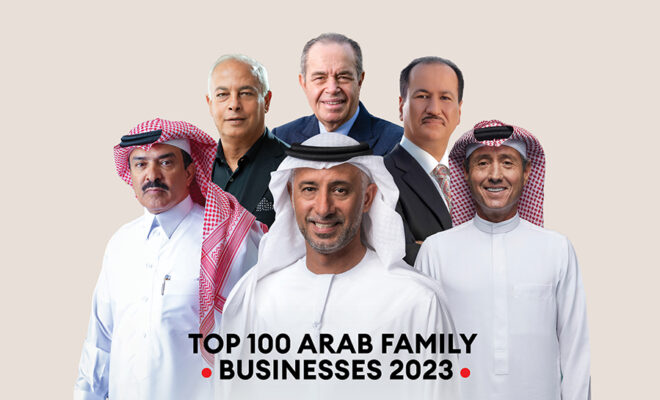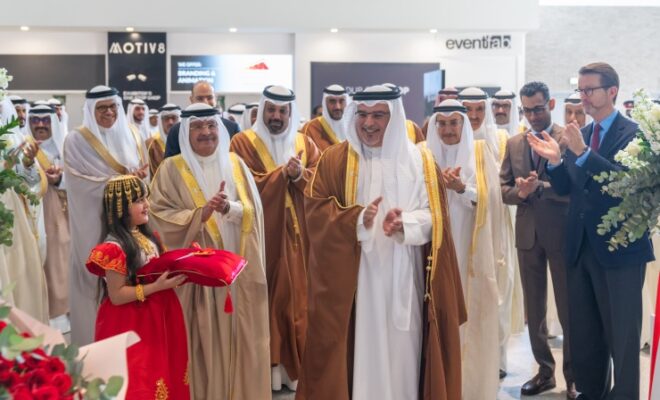BENTREPRENEUR HAILS NOTABLE ADVANCES IN WOMEN’S EMPOWERMENT IN THE GCC TO MARK INTERNATIONAL WOMEN’S DAY

“When you are a woman, nothing comes easy in business. My advice to women is to not give up and to continue working hard until their boss recognizes them.” Mona Al-Moayyed, Managing Director of YK Almoayyed & Sons, Bahrain’s oldest business conglomerate; the first woman to be elected to the board of a publicly traded company in Bahrain, Bahrain Maritime and Mercantile International.
Today we celebrate the spirit and achievements of every woman from diverse cultural, social and economic backgrounds, from ordinary housewives to employees and entrepreneurs who have all created an impact in our lives and our society, as well as those who have conquered great challenges and set precedents that will inspire generations to come.
We pay tribute to the initiator of reforms, which cultivated meaningful changes for all women across every sector and geography around the world, especially in the Gulf Cooperation Council (GCC) countries, where drastic steps have been taken to advance women’s rights and gender equality, and helped develop the ecosystem to empower women and create women achievers and leaders in recent years.
“It is performance that will decide destiny, not anything else.” Muna Al-Hashemi, a Bahraini businesswoman and deputy CEO of the Batelco Group, the country’s leading telecom company that also operates services across the Middle East.
BEntrepreneur highlights the significant initiatives undertaken in recent years by the Gulf countries to advance female empowerment and address their challenges:
On February 2023, the United Nations Information Service in Geneva announced that the Committee on the Elimination of Discrimination against Women concluded its consideration of the fourth periodic report of Bahrain, commending the State on its 10-year National Action Plan.
Hala bint Mohammed Jaber Al Ansari, Secretary-General of the Supreme Council for Women of Bahrain, said that since the adoption of the National Plan for the Advancement of Bahraini Women in 2007, the stages of implementation had progressed gradually. Since 2015, the Government of Bahrain had been mainstreaming women’s equal participation in the development process. The number of Bahraini female workers in the private sector had increased by 39 per cent, their average pay increased by 27 per cent, and the percentage of female entrepreneurs increased to 44 per cent.
United Arab Emirates has introduced a number of measures to improve the position of women; while Abu Dhabi has placed female empowerment at the core of its March presidency at the UN Security Council, where it currently sits as a non-permanent member.
The Emirates in 2021 announced further measures to strengthen protection of women; and a new labour law enforced in 2022 outlined equal pay and no gender discrimination in the workplace, consolidating its law, introduced in September 2020, that stipulated equal pay for men and women in the private sector — the first legislation of its kind in the region.
UAE scrapped the more lenient sentencing for the so-called ‘honour crimes,’ meaning perpetrators who claim to commit crimes to ‘preserve the honour of the family’ will be subject to the same penalties as other criminal cases.
Saudi Arabia introduced major reforms to its personal status laws in 2019; which permitted women over the age of 21 to obtain passports and travel abroad without their guardian’s permission; including permit to register their child’s birth with the civil status office, as well as inform the office of a death, marriage or divorce.
In 2020, Saudi Arabia introduced further measures that would allow women to work at night and in all sectors, in tandem with earlier laws that prohibited wage discrimination. In February 2021, females were allowed to join the armed forces with the first female recruits graduating from the Armed Forces Women’s Cadre Training Centre later in September.
In June 2021, women were given to right to live on their own without requiring consent from their guardians.
Bahrain has also introduced new measures to promote women’s rights and gender equality in recent years. Manama enacted legislation protecting women from sexual harassment in the workplace.
In 2021, Bahrain banned gender discrimination in wages to close the gender pay gap and annulled regulations that limited the professions available to women.
Kuwait enacted legislation protecting women from sexual harassment in the workplace and prohibited discrimination in employment. The parliament criminalised domestic violence and enhanced protections for women in August 2020 and allowed women to serve as judges from September 2020 with the promotion of 8 females from prosecutors to judges.
A historically high number of female candidates run for the parliamentary elections in December 2020 – although none were elected.
The government in Oman in 2021 granted women the ability to acquire a passport using the same method as their male counterparts. Equally, they now hold decision-making positions as a decree in 2020 granted 3 females positions on the Council of Ministers, and they are active in elections, winning seats on the Shura Council and municipal councils.
In turn, in Qatar, women stood in the country’s first legislative election in 2021, but as in Kuwait, none won a seat.
Accordingly, the Gulf countries’ scores in the World Economic Forum’s Global Gender Gap Report for 2021 has largely improved. The UAE takes the regional lead, coming in 72nd place (out of 156), while Bahrain ranked 137, Oman 145 and Saudi Arabia 147 – all achieving a higher score than in 2020. Qatar and Kuwait, however, scored 142 and 143, respectively, registering a slight decrease in their scores due to a lack of progress. All countries, notably, have more females than males enrolled in tertiary education.
Although there are still many challenges and areas which need urgent reform in women’s rights and gender equality in the Gulf countries, the developmental milestones should be celebrated on International Women’s Day.
Dr. Raja Easa Al Gurg, Managing Director of Easa Saleh Al Gurg Group (ESAG) was quoted as saying, “Obstacles are always a stepping stone to success. Surmounting an obstacle is a test of character. You will be surprised to realize how far you can go from the point you thought was the end.”
BEntrepreneur and the GCC celebrate with every woman around the world International Women’s Day!
Source: EGIC, UN Geneva, Philanthropy Age
Image source : worldbank













